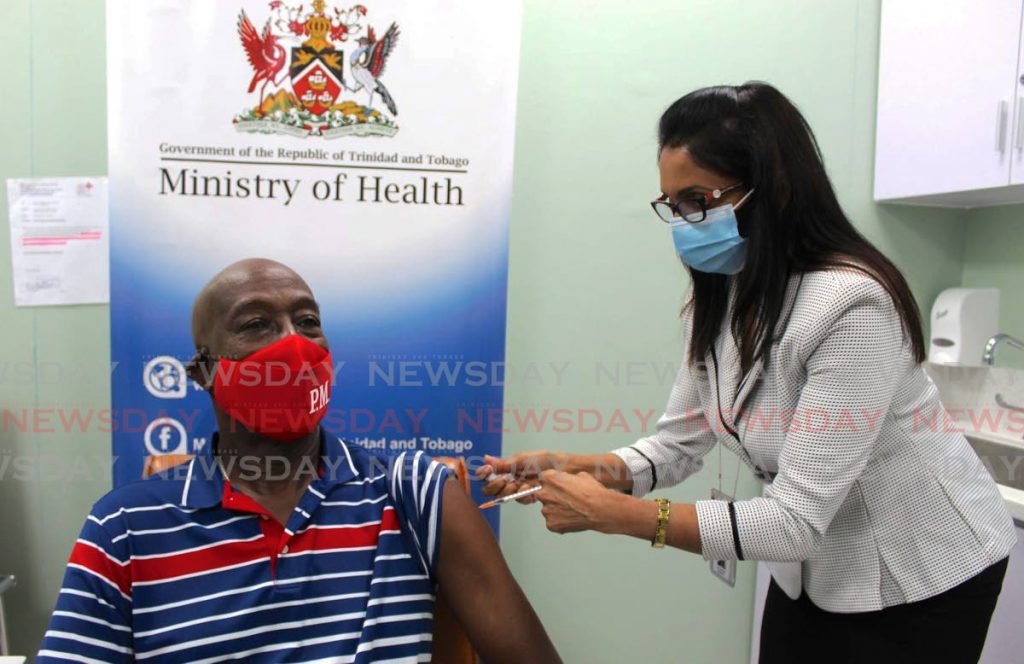Editorial – Too little, but not too late

THE PRIME Minister led by example on Tuesday.
Nevertheless, the disclosure by Dr Rowley’s office that he had received his first dose of the Sinopharm covid19 vaccine was a missed opportunity. Instead of sending a powerful message through an open media event, a press release was issued and video footage disseminated.
Still, a picture speaks a thousand words. The image of the PM getting vaccinated will encourage many.
Equally heartening was the arrival of 800,000 doses of the vaccine from China – enough to cover 400,000 people – on Tuesday. This substantial number means the State will be able to proceed with further phases of the vaccination rollout.
It's projected 600,000 people will have received a vaccine if all of these new doses are distributed, but it’s not yet clear whether that and hence the herd-immunity benchmark of about a million will be achieved.
Just as there are questions over the capacity of the State to administer enough doses in the coming weeks, so too are there questions over the population’s willingness to take them, and also the State’s steps to advise businesses on vaccine policies ahead of business reopenings.
Moves already made by companies such as Mario’s Pizzeria, as well as a statement by Labour Minister Stephen Mc Clashie suggesting an official policy to govern workplace vaccinations is still a work in progress – at this very late stage – suggest the State is at risk of being caught asleep at the wheel.
Mario’s has implemented a covid19 vaccination policy under which those who do not want to be vaccinated will remain temporarily at home – not dismissed – and “alternatives” explored.
“Employees who do not want to be vaccinated for any reason; your decision will be respected,” a company official said on Tuesday.
In the circumstances, this is a generous approach, in line with policies set by governments the world over such as the UK where companies have been told to encourage vaccination but to listen to the needs of employees who might be unable to be vaccinated for medical or religious reasons, and to try to encourage others who are simply uncertain or afraid.
While the jab is not mandatory in many countries, the merits of refusals should be scrutinised on a case-by-case basis, according to the policies set.
Jurists disagree over mandatory vaccination. But we concur with the assessment of Prof Rose-Marie Belle Antoine, dean of the Faculty of Law at UWI, St Augustine who last month concluded public health interests would likely prevail in any consideration, as they should.
Interestingly, the old adage “the customer is always right” is also being challenged by some businesses, which are already saying they will refuse unvaccinated patrons. Given how small and crowded this country is, and the ease of virus transmissibility, that might well be a wise move.

Comments
"Editorial – Too little, but not too late"